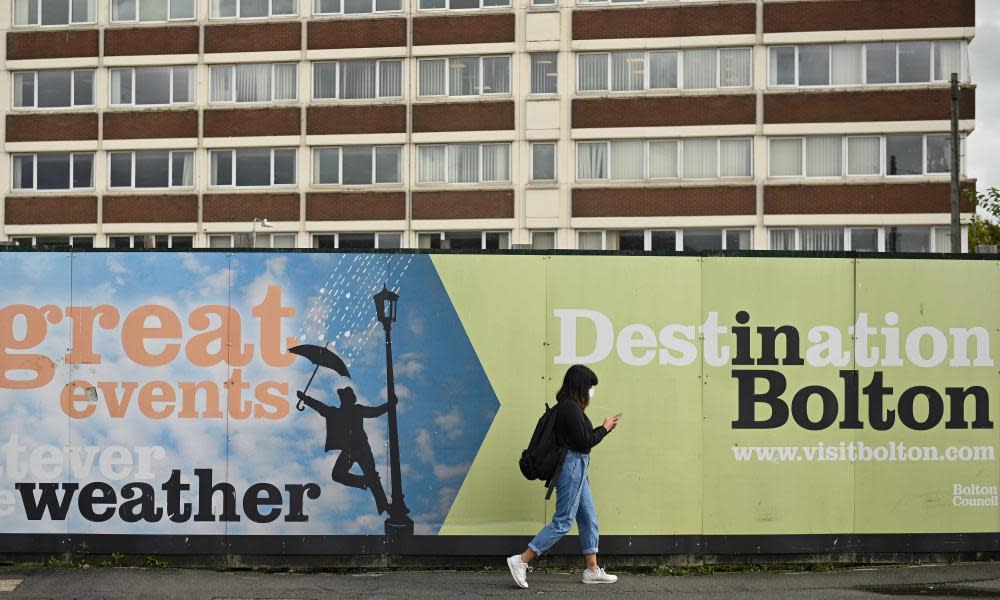People didn't follow the Covid rules out of fear. They did it for the common good

As the government lurches from U-turns to full-on pile-ups, and a second wave of Covid-19 looms large, it’s worth remembering something. For three months back in the spring, we – UK citizens – did what we needed to do. The government may have dozed at the wheel, but when it finally woke up, we acted collectively by staying at home to save lives. And with some notable exceptions, we stayed the course by locking down for longer and more willingly than some predicted.
It’s heartening that we have it in us to act together, especially when it’s not easy for us. But what made us do it? What compelled us to stay in our homes and keep away from our loved ones and, often, our livelihoods? It may sound like a pointless question with an obvious answer: we were scared of catching the virus – or of being caught breaking the rules.
But research carried out during the lockdown presents a different reality. Researchers at the London School of Economics wanted to understand the motivating factors behind lockdown adherence. They discovered that neither knowledge nor fear made much difference. What compelled us to act was our feelings of social responsibility and our perception of what others were doing – our sense of what was normal.
Even with a threat as immediate and serious as a deadly virus, fear for ourselves is not the primary driver of our actions. We act with and for each other, based on our sense of what’s right and what we think other people are doing. The rules mattered – but only insofar as they sent a signal, establishing what was the right thing to do – not because they acted as a deterrent.
The pivotal role of our shared values and social norms in shaping our actions is not new. We are social creatures, and we’ve evolved to behave in relation to how we think about others. But it does fly in the face of how we often talk to each other and routine attempts to galvanise others. On everything from face masks to fossil fuels, we tend to lecture and lambast instead of leading the way to positive change. And it tends not to work that well.
We saw this when campaigners for remaining in the EU attempted to scare voters with dire warnings of economic meltdown. We’re warned about the climate and ecological emergencies daily. The aggregate effect of these warnings is not widespread action and change. It’s disbelief, paralysis or abject fatalism. It’s a profound sense that other people are at fault and will never change. This individual blame game holds us back and blinds us to the systemic change and leadership needed.
The idea that other people are the problem dominates our perception of the climate emergency. A study by Kings College revealed that three quarters of us think other people are not worried enough about climate change. Only 16% of us say we’re not worried enough ourselves. This matters. Our actions are shaped by how we think other people think and behave. When we constantly hear is that no one is taking things sufficiently seriously, it normalises the idea that no one cares, preventing us from moving forward with new norms.
But we’ve seen that we do care for each other. Living through the most immediate challenge we’ve faced in generations tells us a lot about how we do – and don’t – solve big problems in society. We stuck to lockdown because we believed other people were sticking it. Nine out of 10 of us in the UK are wearing face coverings. Doing the right thing by each other is very much the norm. To get through the next stage, we need to keep hold of this reality and see the vocal fringes for what they are.
And we need to learn from these experiences to tackle other huge challenges. To move forward we need to see action not just as necessary but as normal. We need our institutions to lead the way in establishing new norms. A new project from the charity On Road Media is looking at how we can channel these insights and others into the way we talk about climate change.
How we talk to each other matters. It shapes our attitudes and our actions. It can propel us forward or hold us back. By and large the UK public has acted compassionately and responsibly. We need the same from our leaders.
• Nicky Hawkins is a communications strategist for the FrameWorks Institute

 Yahoo News
Yahoo News 